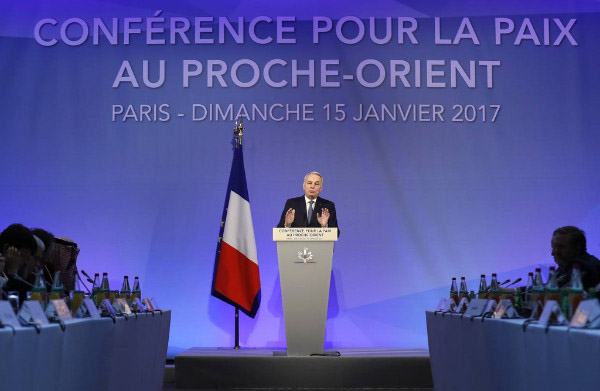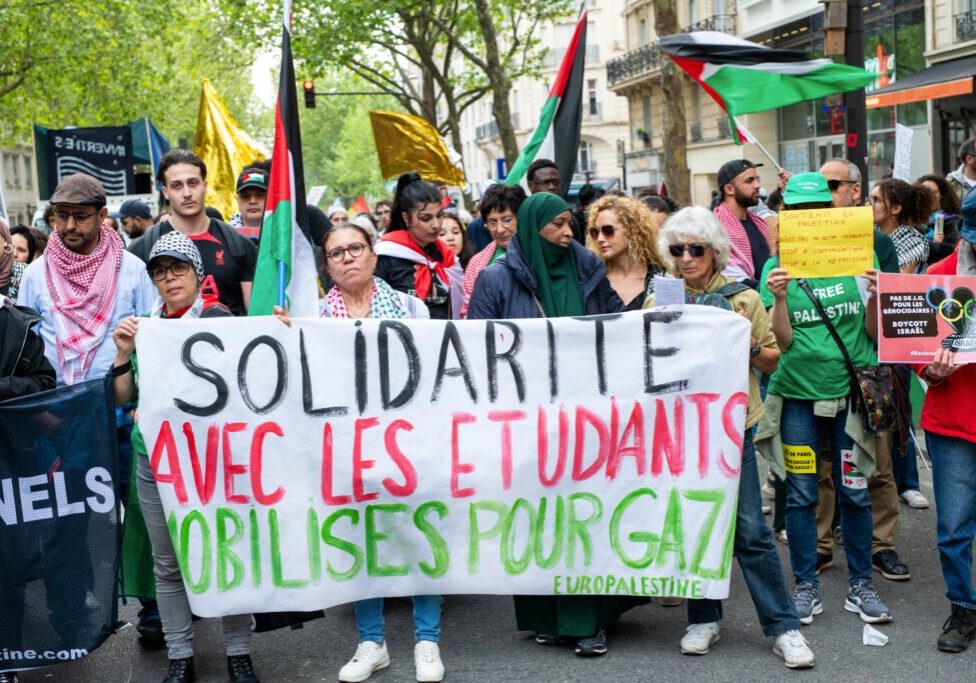Australia/Israel Review
Europa Europa: French Follies
Feb 2, 2017 | Douglas Davis

Douglas Davis
There is no doubt that France was an enthusiastic player in the colonial era. Nor is there any doubt that it is now living in a post-colonial era where the detritus of those bad old days can be detected in a miasma of guilt and shame. At the same time, there are few signs that France has found a role for itself in the new international environment. Or that it has learned to cope with its five-million-strong Muslim population. Little wonder, then, that it has resorted to the role of serial organiser of “Middle East Peace Conferences”.
This does not mean that the French are seeking to resolve the bloody conflicts in a region where barrel bombs, car bombs and plain old suicide bombs deliver death and destruction on a daily basis to the streets of Syria, Yemen, Libya and Iraq. Oh no. The concept of Middle East peace conferences is reserved strictly for Israel and the Palestinians, who inhabit an area where the most notable characteristic is… well, something akin to peace. Relatively speaking.
But the words “Palestinian” and “peace” are so freighted with diplomatic passion that it has become the go-to subject when an ailing political leader like President François Hollande, whose approval rating hovers around 4%, seeks to pass the time before passing from office. So it was that in mid-January he summoned a second Middle East peace conference in just 12 months.
If the first was a damp squib, with barely a dozen delegates attending, last month’s one-day Middle East parley, to which neither Israelis or Palestinians were invited, attracted no less than 74 representatives from around the world.
But not all the attendees were foreign ministers and not all were the uncritical cheerleaders their hosts had hoped for. Outgoing United States Secretary of State John Kerry put in an appearance, representing the tail-end of the Obama Administration, apparently to ensure that the outcome was “fair” (as his recent speech on the two-state solution was not).
Australia’s Foreign Minister, Julie Bishop, declared that while Australia had attended, it did not follow that her country agreed with every element of the final communique. Australia, she noted bravely, did not support “one-sided resolutions targeting Israel… The most important priority must be a resumption of direct negotiations between the Israelis and the Palestinians for a two-state solution as soon as possible.”
That was precisely the point addressed by British Foreign Secretary Boris Johnson, who declined to attend or to even sign the milquetoast final communique: “We have particular reservations about an international conference intended to advance peace between parties that does not involve them,” noted the official British Government statement. It went on to warn that, “there are risks… that this conference hardens positions at a time when we need to be encouraging the conditions for peace.”
Amen to that, the Israelis must have muttered. Even as delegates were gathering, Prime Minister Binyamin Netanyahu told his cabinet that “the conference convening in Paris… is being co-ordinated between the French and the Palestinians. Its goal is to try and force terms on Israel that conflict with our national needs. Of course, it pushes peace further away because it hardens the Palestinian positions and it also pushes them away from direct negotiations without preconditions.” Then, prefiguring what Israel might be expecting from a Trump presidency, he added: “I must say that this conference is among the last twitches of yesterday’s world.”
Rather than persisting with yet another exercise in futility, Hollande might have used the opportunity to invite the visiting diplomats to learn more about the Middle East by studying the just-released Arab Human Development Report, produced by the UN Development Program.
The report notes that over the past decade, the Middle East has experienced “the most rapid increase in war and violent conflict” of any region in the world. The Arab world is also the source of the largest number of refugees and displaced people in the world, and the report estimates that the number of people living in conflict areas in the region will increase from 250 million in 2010 to over 305 million in 2020. Five years after the birth of the Arab Spring, it adds, “Arab youth today remain mired in poverty; they are politically marginalised and voiceless, economically disenfranchised, and socially prone to radicalisation and violence. Theirs is a fragile and often volatile existence.”
Nor is the decadent, infidel-infested West the sole target of their anger: between 1970 and 2014, a total of 141,966 terrorist attacks were recorded. Of these, 31,699 – or 22.3% – were perpetrated in Arab countries, causing 89,102 deaths. In 2014 alone, the Middle East accounted for almost 45% of all terrorist attacks worldwide.
The report contains a further sting: “If the voices and potential of youth in the Arab countries remain ignored…they will become a potent source of protracted social instability threatening human security.”
President Hollande and his diplomatic coterie would do well to look beyond the tips of their noses.
Tags: Europe






